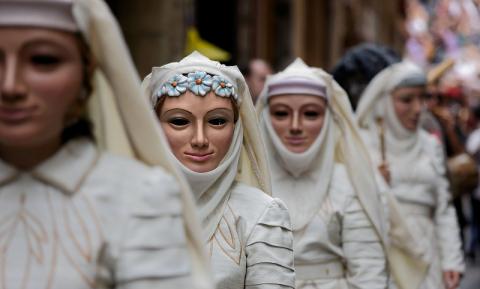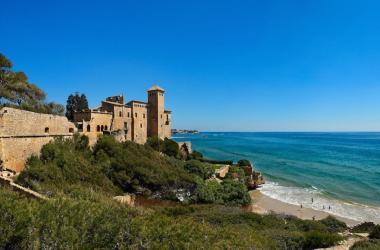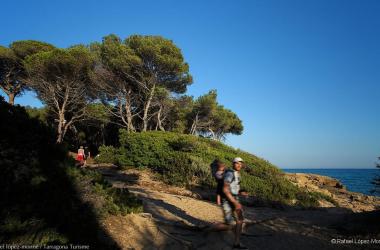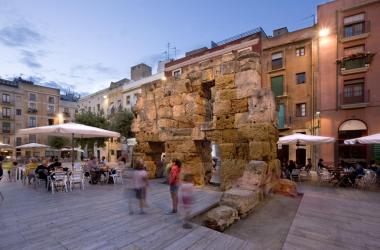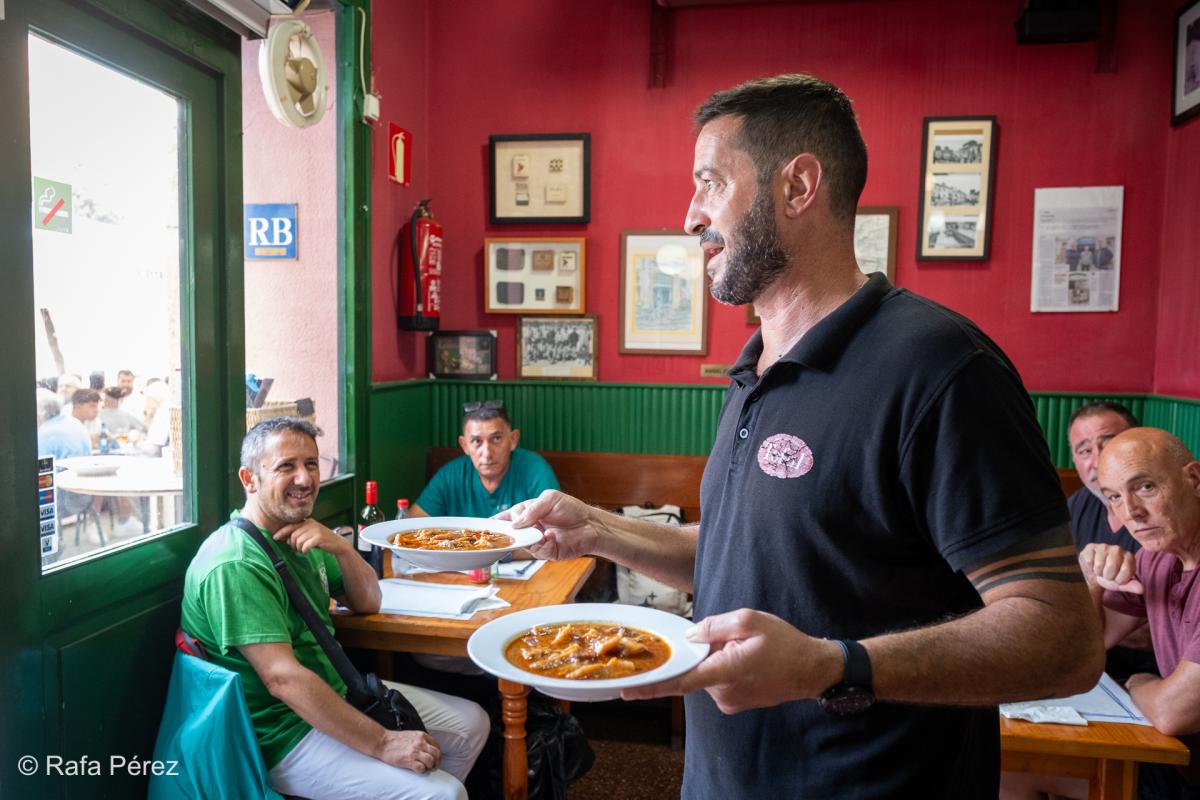Breakfast with "folre i manilles" (Second and third level of the human towers)
Breakfast with a fork, a Tarragona tradition
The story goes that one morning, when Josep Pla went out for a walk in the street, he noticed with a certain astonishment that people were eating. The first thing he thought was that he was late, but the clock did not deceive him: the morning had just begun. That didn't seem right to him; he was used to breakfasts in the city being rather skimpy, frugal, and meagre, just a piece of toast with a cup of coffee. The writer from Empordà christened those meals "fork breakfasts", which were nothing more than the inheritance of that first meal, quite rich in calories, that the peasants and vendors used to eat at the weekly markets, which were set up in the villages to last them the whole day. Since then, this ode to cholesterol, flanked by half a loaf of bread and without haste, has become an institution in Catalonia. And Tarragona is no stranger to this tradition.
Tripe, stewed oxtail, knuckle, pig's trotters, cheeks, snout, ear, cod with ratatouille, or sausage with beans, as well as huge sandwiches, are some of the dishes that parade along the tables of the great temples of breakfast in the city and its surroundings: Tòful, in Plaça del Fòrum; l'Espardenya, in Plaça de la Pagesia; el Racó d'en Mario, in Carrer Merceria; the bar La Rosa, in Torreforta; Cal Mellado, in Constantí; or the Cafè del Rourell.
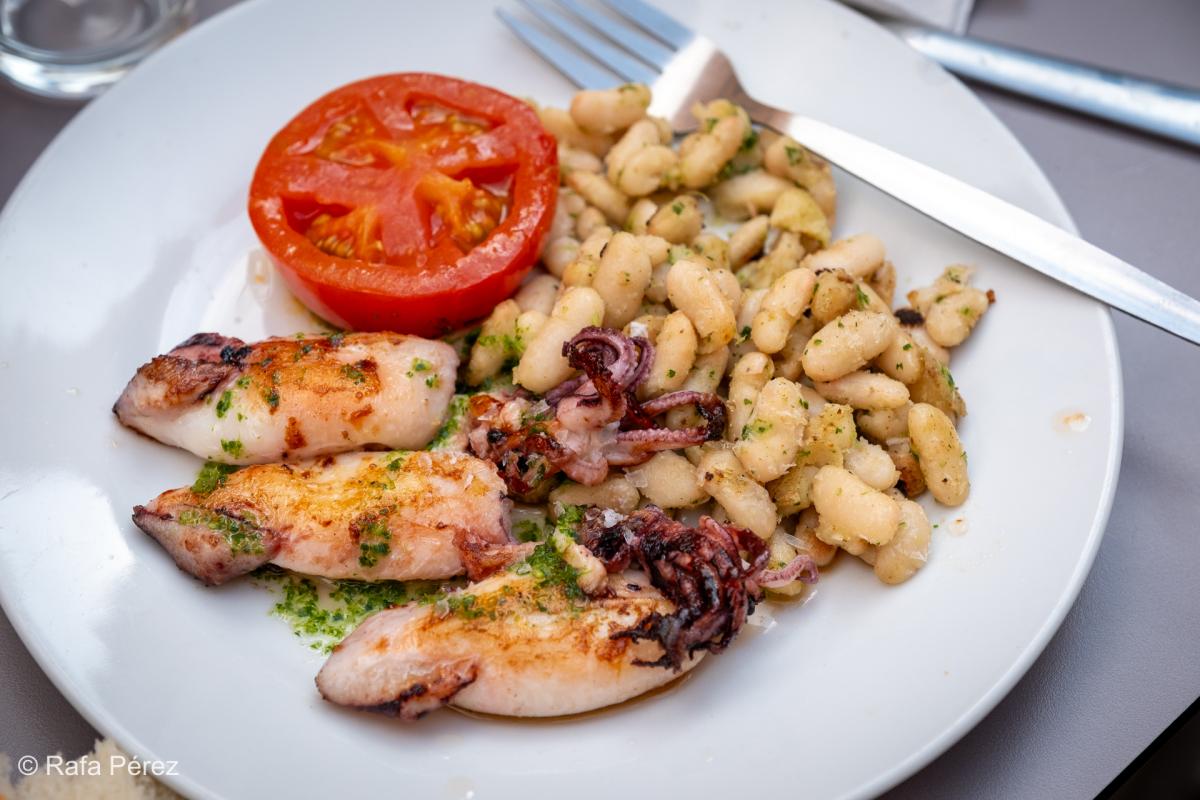
The four groups of castellers (human towers), Xiquets de Tarragona, Jove, Xiquets del Serrallo and Sant Pere i Sant Pau, are regulars at these meetings. Some of their members have been scheduling them periodically for decades. There is even a split from the Xiquets de Tarragona that leaves no room for doubt: the Penya Esmorzar. Its coat of arms has the same signature as that of the colla (group), but a spoon and fork are crossed inside. Their breakfasts are especially multitudinous and emotional during the Sant Magí i Santa Tecla festivities, when a good plate, plenty of bread for dipping and a couple of sips of wine and soda help to better withstand the nerves of the big performances. On those days, the castellers sit at the table dressed in the colours of their group, some with their shirts on, the more prudent ones with a T-shirt, because there is no question of ending up with a bigger stain than the coat of arms itself. Nowadays it is easy to see the colours of several colles in the same restaurant, even sharing a table, but it is said that once upon a time each colla had its own place for breakfast.
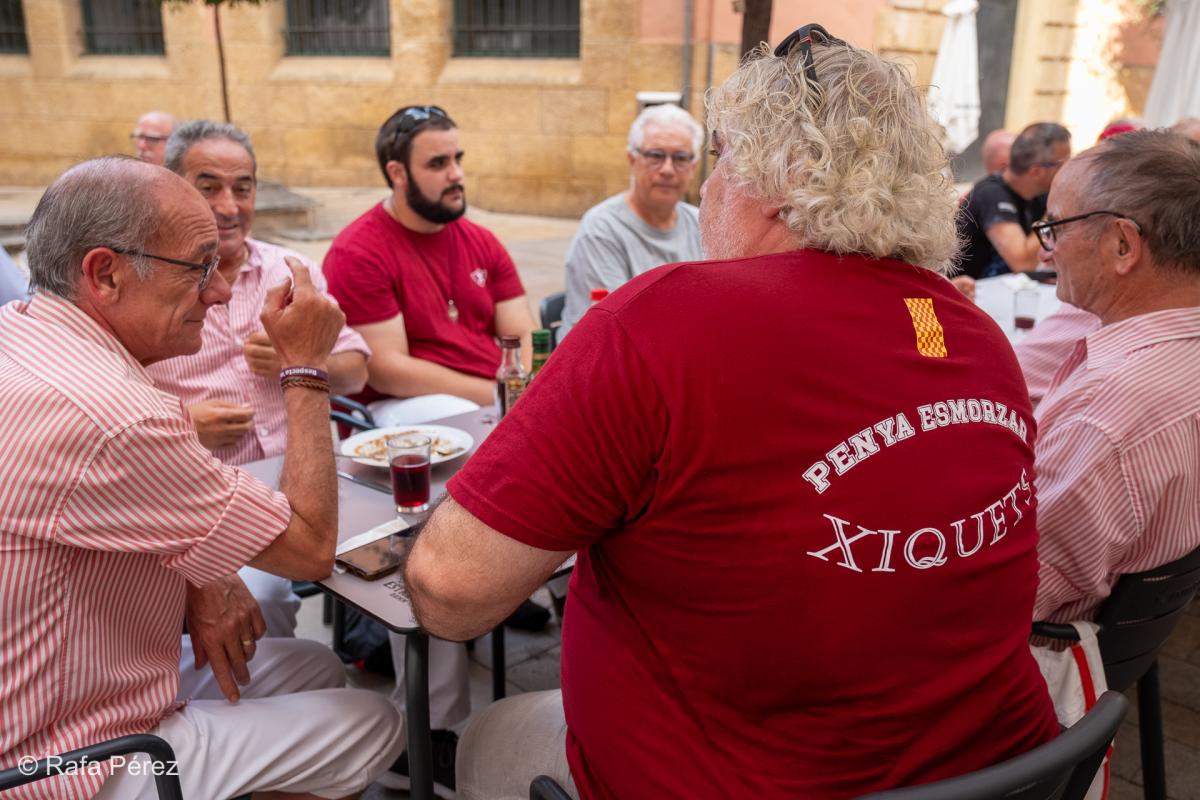
The name "breakfast with a fork", say the castellers, is a thing of the big cities. In Tarragona they simply meet for breakfast, or, in some small groups, they refer to the "breakfast of strong grain". Among the conversations we hear many anecdotes and this kind of jokes that are repeated over and over among friends, but which nevertheless continue to provoke the same sincere laughter, such as when so-and-so's sash and trousers fell while he was standing at the base of the castle, or when so-and-so's shirt broke.
They also talk about the year in which they began to form part of these spectacular human towers. Some go back to 1970 without missing a single date. There are those who started as enxaneta (the child who climbed to the top of the tower) and now can only cheer from the outside of the tower, but with the same enthusiasm as in the early days. Another proudly explains that he christened his son with the colla shirt. In the toast with a glass of Chartreuse come the heartfelt memories for those who are no longer here, all those friends with whom for decades they shared the bread for breakfast and the euphoria in the square.
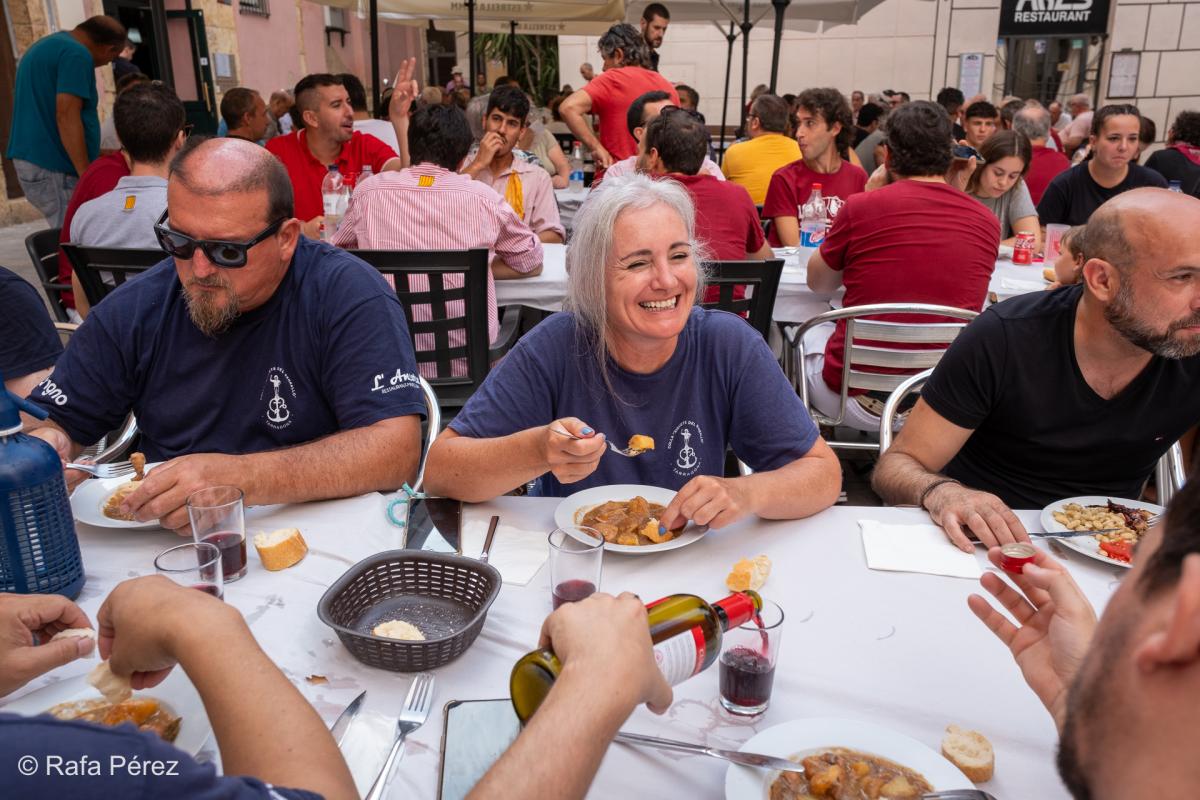
In an age in which we stubbornly put labels on everything, you only have to participate in one of these breakfasts to see that mindfulness and other kinds of therapy, far from being recent inventions, have been taking place for decades under the shelter of these traditional, calorific and hearty dishes.
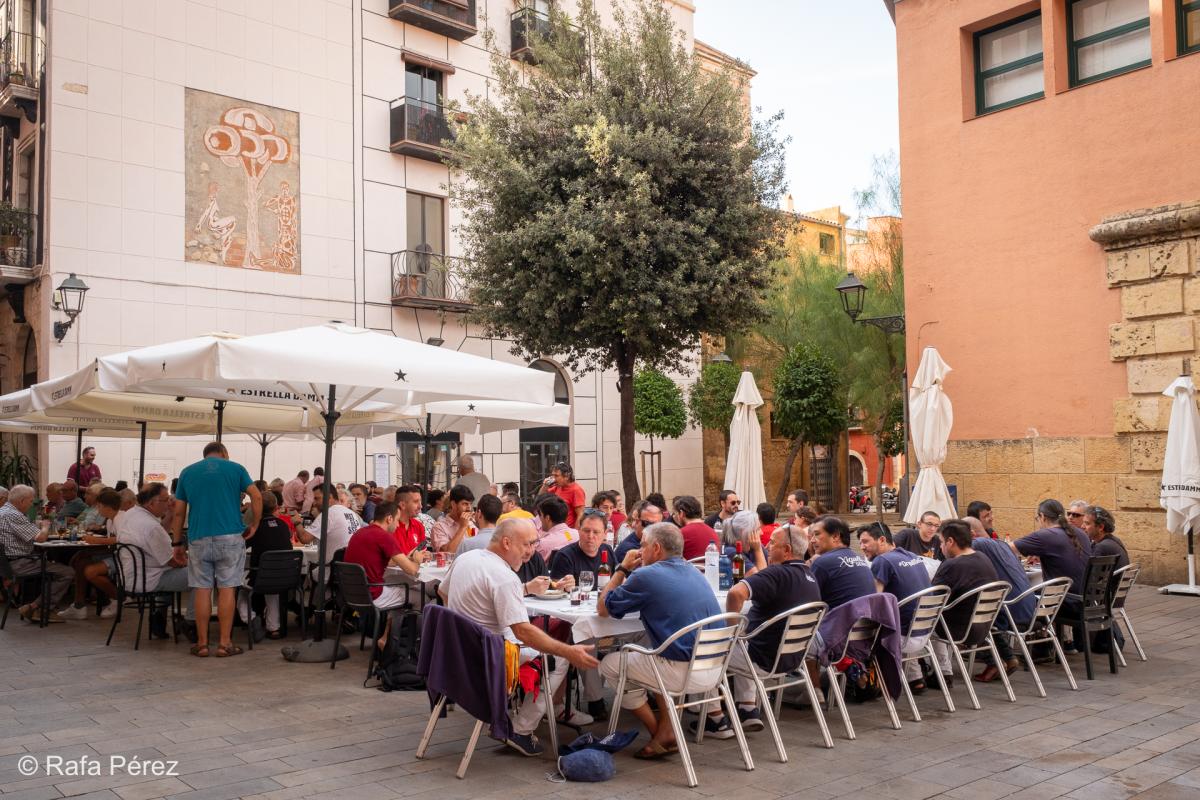
If castells have been on the Unesco Intangible Heritage of Humanity list since 2010, perhaps the inclusion of the "breakfast with fork" should also be considered for its social function, for its role in the oral transmission of stories and anecdotes that are not recorded anywhere but on these tables, and because it is an indissoluble part of the great days when we get excited and break into applause when the enxaneta raises his hand to the sky making the gesture of the flap of his fin.

